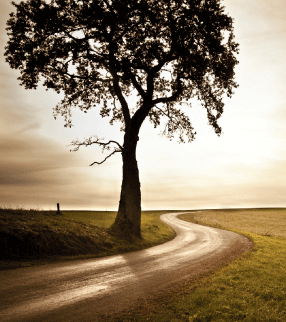
Why Rural Justified? Well – “rural” is one of those words that warrants our scrutiny lest we assume we already know what it means, and then move on to bigger and better things.
Yet one of the problems with the very word “rural” is precisely this assumption. Rural is usually considered plain and simple, if not the antithesis of “bigger and better.” Rural is somehow imaged as something, and often someone, that is unrefined and raw, not fully developed, especially when compared with what is found in the city, or in more populated areas. We all know that civilization and culture are unwittingly identified with urban centres.
The typical definition of rural is thus determined by the proximity of a place to a metropolitan centre. Without close proximity to a city, therefore, a rural community, small town, village or hamlet risks geographical and cultural oblivion, or so this largely demographic definition (and subsequent valuation) of rural seems to suggest.
Meanwhile, the geographical location of being in “the country” raises the root problem of why rural needs to be justified: because the above definition tends to dismiss those out-of-the-way places and the people who choose to live there – as economically, culturally, religiously, and literarily, marginal. In the sticks and boonies.
On the contrary, a rural Albertan participant in one of my recent Alive and Kicking workshops quipped that when she is asked by someone where she lives, her unequivocal reply is: “in the middle of everywhere.”
Rural needs to be justified because rural people are frequently stereotyped in unflattering and generalized ways. These stereotypes dish up all the leftover historical and cultural epithets used to denigrate all kinds of rural people.
This Rural Justified website is all about honoring the human faces and personal dignity of the millions of people who have lived and worked in rural communities and cultures everywhere, and still do, no matter where they might live now.
Without apology, many of us are proud of our down-to-earth association with the profundity, primacy and fecundity of dirt. If we dig down with shovel in hand and don’t hit water, we may hit “pay dirt” of some kind – or at least learn to pay more attention to dirt.
Dirt is, in the last analysis, biblical, if we recall the first part of our Bible: Adama is the Hebrew word for earth. As we know from the Genesis account, God formed Adam from the dust of the earth.
